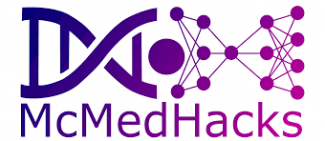Week 3 – Histopathology and image analysis
June 25th at 12:00-13:30 EDT
Speakers
Karl Otto, Phd
Experiences in medical software entrepreneurship
He will talk about his experiences creating, protecting and licensing novel software algorithms in the radiation therapy industry. He will include some specific examples of the challenges he faced in bringing a high impact technology (VMAT) from an idea into routine clinical practice.
Joshua Giambattista, MD
Building and deploying AI models for clinical practice
He will talk about his experiences creating, protecting and he will talk about his experience founding Limbus AI including important lessons learned from building, validating and deploying clinical AI software. The talk will focus on the importance of clinician lead validation and domain expertise required to build successful expert grade AI models. He will describe experience with research collaboration and highlight the role of communication between clinicians and engineers necessary to make clinical AI safe and successful.
Carter Kolbeck, M.Sc.
Medical imaging machine learning pipelines for production
Building and maintaining end-to-end machine learning pipelines for clinical medical imaging applications.
Jon Giambattista, B.A.S.c
Shipping AI software in a regulated medical device industry
The challenges of deploying AI software in the regulated medical device industry. The differences in market regulations (Canada, US, Europe). Validation of AI to the standard of regulators.
Workshop 3 – Histopathology and semantic segmentation
June 27th at 10:00-11:30 EST
Instructor: Luca Weishaupt
The fundamentals of medical image analysis using the example of histopathological images. This workshop will walk participants through how to retrieve medical images from public datasets and how to use algorithmic tools to perform medical imager analysis and transformation.
Instructor: Dr. Farhad Maleki
Evaluation of machine learning models
A sound evaluation of the performance of machine learning models is essential for developing generalizable machine learning models with the capacity to be deployed in real-world settings. In this talk, we cover the best practices for evaluating machine learning models in the medical domain and the requirements for developing generalizable solutions in the healthcare domain. Read more at: https://doi.org/10.1016/j.nic.2020.08.004.


